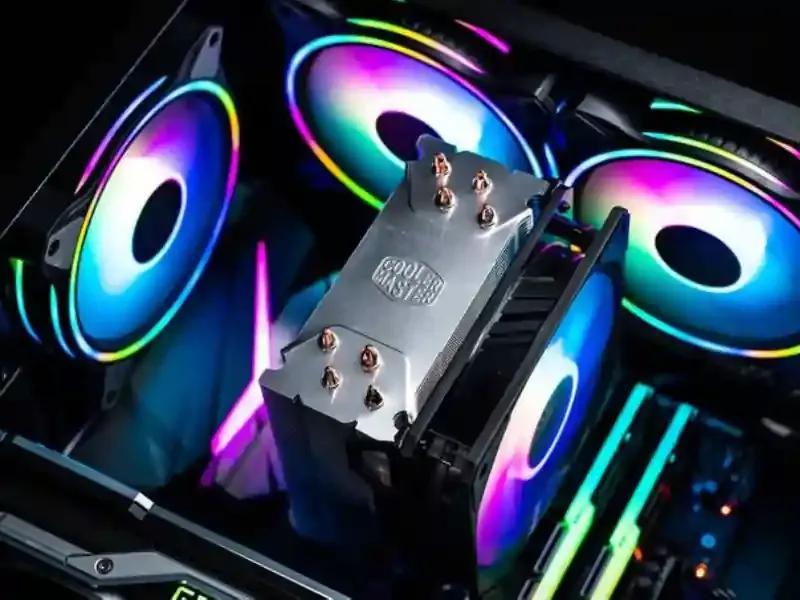In what you may think is a sharp contrast, thinking about changing your CPU is not only simply about buying the best one. You must mull over how it matches with what you’ve already got, how fast it’ll make your computer, and how much cash you have to offer. It’s a balancing act trying to juggle ensuring the new CPU will work well with your old gear, getting the most speed boosts for your money, and not spending too much.
Compatibility Considerations
Before you start thinking about jumping from an i7-3370 to an 8th-gen CPU, it’s of paramount importance to make sure they can actually work together. Check if they fit correctly—that’s only concerned with socket compatibility. In addition, note to see if your motherboard is very good at taking the new processor. You don’t want any problems swapping them out.
Before a new CPU upgrade, one really needs to think about the heat. If we’re not careful, our amazing new processor could just become very warm. In addition, we have to make sure that the thing won’t simply use up all our power supply. A discerning reader may begin to register that it’s also pretty intelligent and informed to check if our BIOS updates are in check for the new CPU compatibility.
Performance Analysis
Before you think about jumping to a supposed 8th-gen CPU from the i7-3370, you must think hard about how amazing the new gear could be. Understanding if the new items will actually work well together and fit is of paramount importance. This is noticeably focused on being entirely sure everything works together perfectly. It might be hard to see at first–but try to picture lifting your CPU approach to something wonderful.
Looking at the differences in how fast the old and new CPUs can do tasks alone or all at once provides some clear clues. Getting into the nitty-gritty of what each CPU can do by looking at benchmarks helps us understand the truth about speeding things up.
Check out other Articles.
Cost Evaluation
Unsurprisingly, I find that it’s not simply how much cash you spend on a new CPU that matters —you must also consider whether you’ll need a new motherboard because it needs to match up with the CPU. Then there’s the heat to think about. If the new CPU runs extremely hot, obviously, you’ll need to make sure you are not in danger, which means spending on that, too.
To understand everything well, you must count all the small parts when you’re upgrading because every small cost matters a lot. You must really focus on it and think through the total price for the upgrades. A discerning reader, such as yourself, will surely comprehend that the extras, even if they seem like they don’t fit in, are of paramount importance to consider.
Frequently Asked Questions
Is Overclocking Possible With the New CPU Upgrade?
In doing our part, we’re going to see if that CPU upgrade we got can be made to work faster. Make sure the CPU you chose can be overclocked and that it’s a good fit for your cooling system and motherboard. You may be a little unsure of that, but think about how much faster your setup could run.
Are There Any Specific Driver Updates Needed for the New CPU?
It’s easy to see how important it is to stop your new CPU from misbehaving and keep it going smoothly; to do this, head to the make of your CPU’s site and get the latest updates for its driver; they’re critical because they help it work correctly and stop it crashing at the worst times. In addition, adding those updates little by little can extremely boost how your computer runs.
Will the Upgrade Affect Warranty or System Support?
Upgrading the CPU may void the warranty if not done according to manufacturer guidelines. Check with the warranty terms before proceeding. Ensure system support for new components to avoid issues.
Are There Any Potential Compatibility Issues With Existing Software?
Also, double-check if the OS on your computer is quite accepting of the upgrade. Unsurprisingly, before you even think about getting a new CPU, I find that it’s of paramount importance to make sure all the items on your computer—such as the computer requirements and software pieces—will truly function with the upgraded hardware.
Conclusion
It may seem hard to believe, but we can take comfort in knowing that upgrading your computer with a new CPU might actually make a difference. But you must see if the new brain, I mean the CPU, is even going to fit and work right with your computer’s motherboard. You must know if an upgrade will truly make your computer faster in a way you’ll notice, essentially opening your eyes to how spectacular this might be.
Also, note to think about the money part. Is spending all that cash going to feel worth it? When you look around and try to learn a lot of things correctly, you’re on your way to thinking through the complexities of whether changing your CPU is an intelligent and informed choice.






